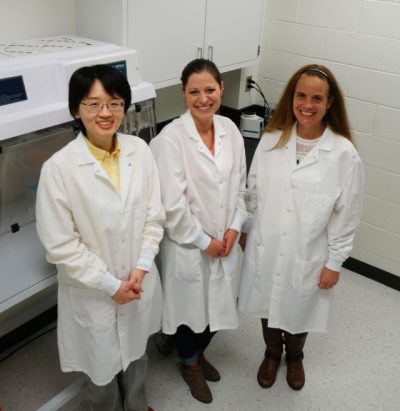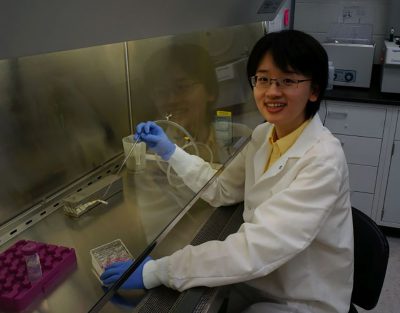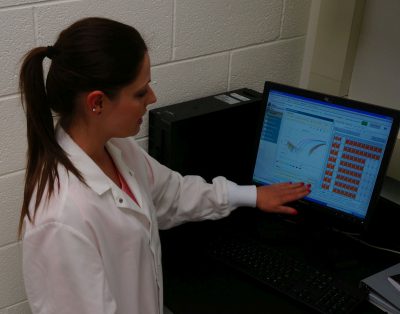The Soboll Hussey Laboratory studies herpesvirus pathogenesis. Specifically, the Lab is working on identifying which parts of equine herpesvirus 1 and what aspects of the horse's immune system contribute to why we see neurological disease and abortions in some horses, but not others. The Lab also is trying to identify how to modify feline herpesvirus-1 by deleting select genes for the development of modified live vaccines.
Gisela Soboll Hussey, DVM, MS, PhD, uses in vitro models of the equine, feline, and canine respiratory tract to research respiratory immunity and modulation of immunity for protection from viral disease. In addition, she employs various models that use EHV-1 infection of immunoprivileged vascular endothelia to study EHV-1 myoencephalopathy (EHM), and the role of different EHV-1 genes in EHM pathogenesis.
IMMUNITY AND IMMUNE MODULATION

The emphasis of research in Dr. Gisela Soboll Hussey’s lab is to study immunity to, and immune modulation by, herpesviruses. The Laboratory focuses on characterizing the immune response to viral respiratory diseases, including responses to equine herpesvirus-1 (EHV-1), equine herpesvirus-4 (EHV-4), equine herpesvirus-5 (EHV-5), equine influenza virus, feline herpesvirus-1 (FHV-1), and canine respiratory viruses.
The team's goal is to understand viral pathogenesis and how initial interactions between viruses with their hosts influence host immunity and protection from infection and disease using equine, feline, and canine respiratory epithelial cell (EREC/FREC/CREC) systems for studying immunity, cell-to-cell interactions, and function of immunomodulatory genes. The information collected with these systems is then used to decide how to proceed with studies in horses, cats, or dogs to develop new vaccines or therapeutics.
A major interest of the Laboratory is EHV-1, a highly contagious pathogen of horses that causes upper respiratory disease, late-term abortions, and neurological disease. The Lab's focus is to study the way EHV-1 genes impair the horse’s immune response to this virus and facilitate the transfer of the virus to the CNS. The Lab's goal is to identify new targets for developing effective therapies and vaccines that could prevent EHV-1 infection and EHM. In addition, the team focuses on the development of new models to study equine herpesvirus myelitis (EHM).
Dr. Gisela Soboll Hussey has employed several undergraduate students and DVM students, and has served as major advisor to two PhD students, four postdoctoral fellows, and two MS students. She also serves on the mentor committee for two junior faculty members. One PhD student and one postdoctoral fellow are currently training under her mentorship.


